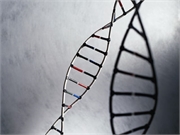Expanded testing could increase detection of carriers for BRCA1/2, mutations in other predisposition genes
FRIDAY, March 6, 2020 (HealthDay News) — Expansion of National Comprehensive Cancer Network (NCCN) hereditary cancer testing criteria to include all women diagnosed with breast cancer at ≤65 years would improve the sensitivity of detection of germline pathogenic variants, according to a study published online March 3 in the Journal of Clinical Oncology.
Siddhartha Yadav, M.D., from the Mayo Clinic in Rochester, Minnesota, and colleagues evaluated 3,907 women with breast cancer enrolled in a breast cancer registry for germline pathogenic variants in nine breast cancer predisposition genes. Performance was compared for the NCCN hereditary cancer testing criteria relative to testing all women as recommended by the American Society of Breast Surgeons.
The researchers found that the 47.9 percent of participants meeting NCCN criteria were more likely to carry a pathogenic variant in nine predisposition genes versus those women not meeting criteria (9.0 versus 3.5 percent). Overall, 0.7 percent of those not meeting the criteria had pathogenic variants in BRCA1 or BRCA2. The sensitivity of NCCN criteria was 70 and 87 percent for nine predisposition genes and BRCA1/2, respectively, with a specificity of 53 percent. Sensitivity would exceed 90 percent for the nine predisposition genes and exceed 98 percent for BRCA1 and BRCA2 with expansion of NCCN criteria to include all women diagnosed with breast cancer at ≤65 years of age.
“We were surprised to find that the NCCN guidelines missed approximately 30 percent of mutation carriers in breast cancer predisposition genes,” Yadav said in a statement.
Several authors disclosed financial ties to the biopharmaceutical industry.
Copyright © 2020 HealthDay. All rights reserved.








